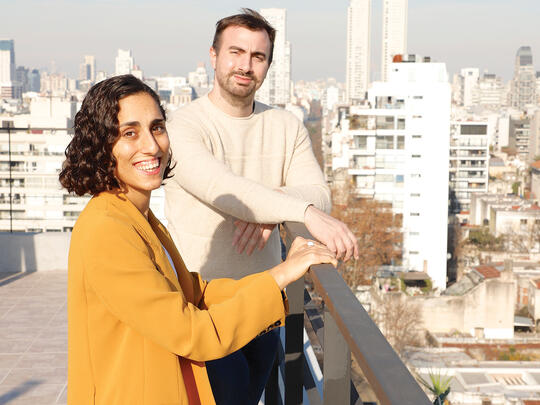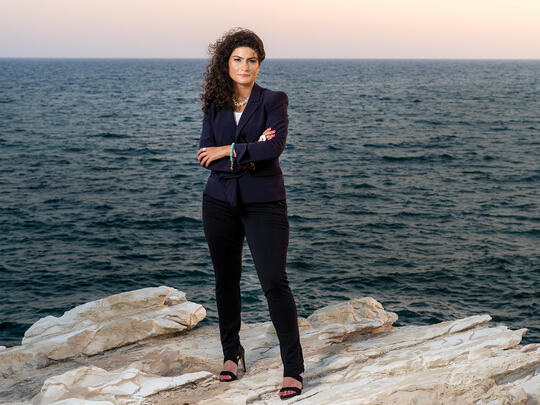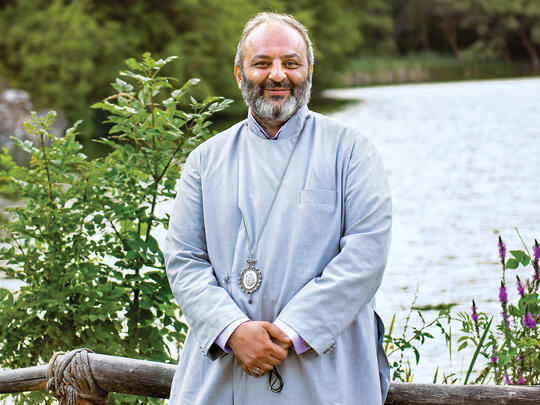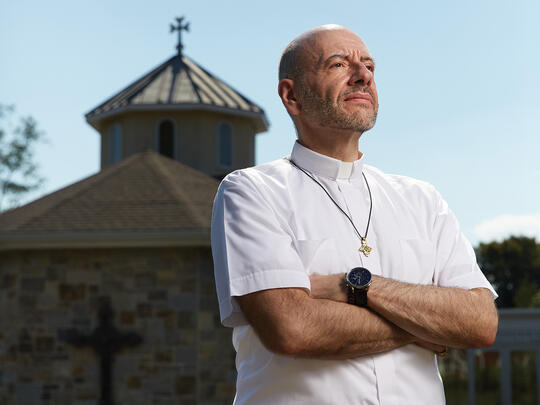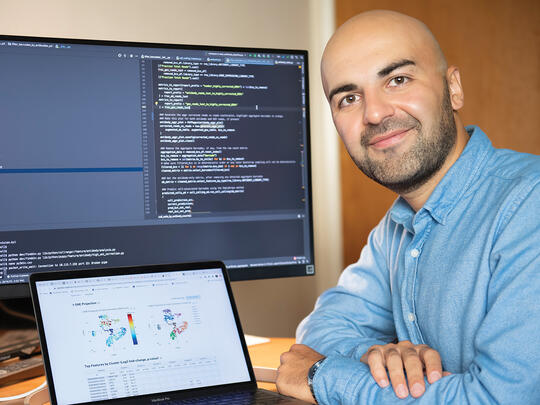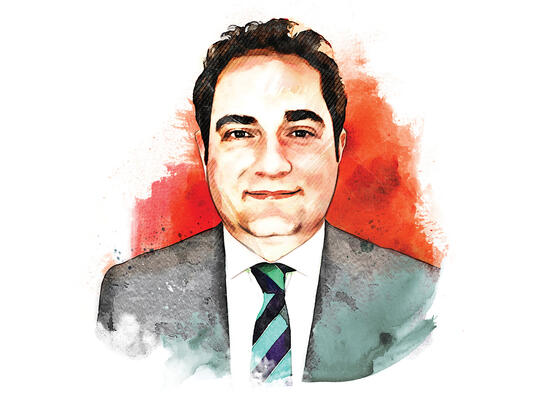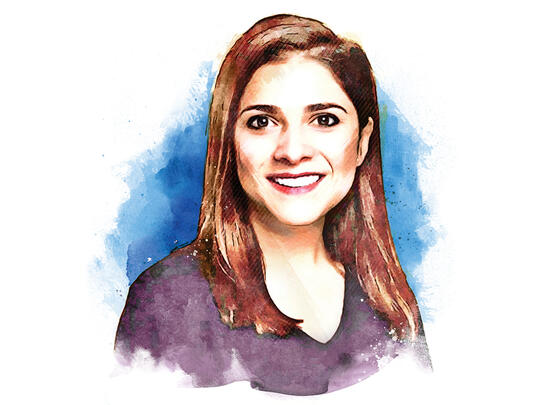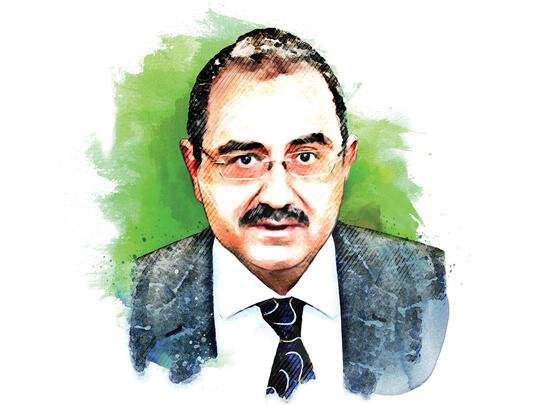A professor and researcher in the Department of Neuroscience at Scripps Research, an institute in California, Dr. Ardem Patapoutian has spent his career studying the everyday magic in the sense of touch. Such a basic experience for us all, the ability to detect it has long been a mystery to science. Dr. Patapoutian’s findings, for which he was recently recognized as a 2020 Laureate of the Kavli Prize in Neuroscience that honors scientists who made transformative breakthroughs, hold the promise of more efficient and safe ways for treating chronic pain and better understanding of how our body handles disease. Dr. Patapoutian, alumnus of AGBU Demirdjian School and AGBU Hovagimian-Manougian School in Lebanon, shared with us the joy of scientific discovery, the beauty of the human body’s inner workings, and the hope such findings hold for healing in the future.
Q What aspect of micro-neurology are you involved in?
A Rather than sensing chemicals like taste and smell do, touch relies on the instantaneous millisecond-level sensation of physical forces like pressure on your skin. How our bodies do this was not known. So the Kavli Prize recognized my laboratory discovered ion channels (specialized proteins) that are directly activated by pressure. We know from genetic studies, both in humans and in animal models, that without these ion channels you cannot sense touch and some forms of pain.
Q What attracted you to this specific area of research?
A I started studying neuroscience when I was a postdoctoral fellow, during which I recognized that the nervous system was both very fascinating and has massive relevance to human health. As I was new to the field, I decided to start with the simpler system of sensory neurobiology, but I’ve found it so fascinating that I’ve stayed in it my entire career.
Q What are the implications and applications of your findings in the diagnosis and treatment of patients?
A There are indeed immediate applications for this discovery, but I also want to emphasize the importance of conducting basic science. Some of our most revolutionary technologies that will have major impacts on human health all start as basic science projects with no immediate application in mind. So, basic research by itself is very important, as you cannot chart the path of what discoveries will give rise to the most relevant information for human health. It’s a beautiful thing to start thinking about how we have evolved to be able to do something so outrageous as sensing small amounts of forces in your skin to give you this rich percept of touch that we feel every time some loved one hugs us, or when we feel a gentle breeze on our arms.
As for the work’s immediate applications, one is its potential for treating various forms of chronic pain. This approach would not have the detrimental impacts of addiction or other sedative effects found in the opioid drugs currently used. In addition, although not immediately obvious at first, we have found that these ion channels are involved in regulating blood pressure and other fascinating biology beyond sensing touch and pain.
Q What do you think the general public would be most surprised or intrigued to learn about this phenomenon?
A We study a sense called proprioception. It is one of the most important senses, and almost no one knows that it exists. Instead of sensing pressure to your skin, your muscles also have the same stress sensors and from how much your muscles are stretched you know where your limbs are in space. Human beings who are deficient in this ion channel (Piezo2) don’t have proprioception, and consequently lack balance and don’t learn to walk until they’re five or six. Some are wheelchair-bound their whole life. When they are able to walk, they’re not very coordinated. Proprioception is sometimes called the sixth sense. And most people don’t know about it partly because you can normally never turn it off, right? You can close your eyes, and then you can imagine what life is without seeing. If you block your nose, you know what not smelling is like. Proprioception is always there, so we take it for granted, but it is so essential because, without it, we can’t even stand and walk.
Q What are your goals for the next phase of your research?
A Our work on touch and pain is just the tip of the iceberg, as these molecules we have identified will allow us to now ask how our body senses pressure for each different biological process and disease. We know, for example, that astronauts that go into outer space for a long time come back with reduced bone density due to a lack of gravitational force sensing. Reduced bone density also occurs in diseases such as osteoporosis. We’re very interested in how the body responds to pressure, and these molecules that we found, the Piezos, are helping us understand novel pathways of both biology and disease in areas beyond sensory biology.
Q Any words of advice for pursuing a career in medical research?
A I have the incredible advantage to work with very talented colleagues and trainees who come from very diverse backgrounds. It’s very gratifying to make novel discoveries that can impact human health. Coming back to basic science, I think one of the more wonderful things humans can do is to expand scientific knowledge. It’s a legacy that I’m sure future generations will appreciate as we continue to discover the secrets of the universe, including our bodies, through science.
Banner photo: Dr. Ardem Patapoutian outside the Scripps Research Institute in San Diego, California. Photo by Stacy Keck



